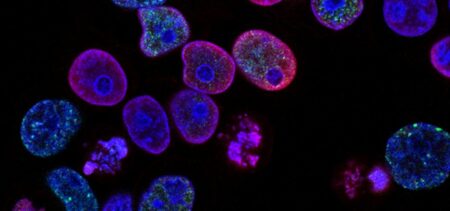The COVID-19 pandemic has taught scientists, policymakers, and individuals around the world many lessons about the future of both healthcare systems and the biopharmaceutical industry. Moreover, this new virus and the disease it caused has also prompted numerous companies operating in these fields to change their strategies, develop new products that can prevent or treat diseases, and improve medication. One of the most interesting strategies that has been developed during the healthcare crisis was the idea that “old” drugs can be repurposed to prevent or cure new diseases, also known as drug repurposing or drug repositioning.
According to recent studies, this strategy aims to identify existing FDA-approved drugs and use them to cure other diseases than those that led to their development. Drug repurposing begins with identifying advanced uses for already approved treatments or existing medicines. Considering that the entire drug development process is difficult, time-consuming, and extremely costly, the repurposing strategy offers several immediate advantages, such as cost cutting and time reduction. Moreover, drug repurposing lowers the risk of conducting ineffective trials because it is based on FDA-approved drugs, thus eliminating the need to conduct these studies in the first place.
Drug repositioning is an effective strategy that was tested during the COVID-19 pandemic, and can continue to help biopharmaceutical companies and people everywhere in the future.
How New Technologies Can Improve Drug Repurposing
Research shows that there is a clear connection between the increasing use of new technologies and platforms in science, healthcare, and pharmaceutical development and the improvement of the process of reusing various drugs, therapies, and medicines. According to the study cited above, translational bioinformatics (TBI) could play a leading role in improving drug discovery and drug repurposing by bridging the gap between clinical biomedical data and pharmaceutical research. This technique involves using computational activities or platforms to obtain clinically feasible information from very large databases.
During the COVID-19 pandemic, scientists and doctors around the world studied the reuse of molecules such as hydroxychloroquine, ritonavir or lopinavir, favipiravir, remdesivir, ivermectin, dexamethasone, camostat mesylate, and heparin to alleviate symptoms of the new disease. According to a recent study, four drugs were proven to be effective in treating COVID-19 patients during the healthcare crisis. This has led scientists to believe that reusing drugs to treat COVID-19 may be a successful strategy to cure the disease. However, scientists also pointed out that further clinical trials are needed to discover the true potential of some antiviral molecules.
Research conducted during the recent healthcare crisis has shown that drug repositioning is a fast and effective way to discover new ways to use existing medicines, especially with the help of new technologies.
Drug Repurposing: Current Issues and Challenges
Although drug repurposing has quickly become a leading strategy in the biopharmaceutical industry and appears to have a promising future, this strategy is not without challenges. Recent research demonstrates that this is one of the most active areas of pharmacology in the last decade, but it also faces multiple commercial and regulatory obstacles. Moreover, drug repurposing is also closely linked to technological advancements and the development of new platforms that allow a better examination of current patient data and previous clinical trials. Although it is a more cost-effective strategy than medicine development, drug repurposing comes with its costs.
According to another study, one of the most important problems scientists should consider when discussing drug repositioning is the inability to fulfill its promise. After all, it is by no means easy for a drug developed to treat one disease to cure another. Other elements that may prove essential for the future use of drug repurposing include intellectual property issues, clinical and regulatory strategies, and the principle of equipoise, which offers ethical justification for randomized controlled trials. Although drug repurposing is an easier way to provide people with safe and effective medicine, some aspects of drug repurposing should probably remain similar to traditional drug development, in order to protect both safety and effectiveness.
The Future of Drug Repurposing
There is no question that companies and scientists should focus on identifying and using the undeniable opportunities of drug repurposing. However, they should also consider the legal, ethical, and commercial efforts required to make this strategy an even greater success.




































